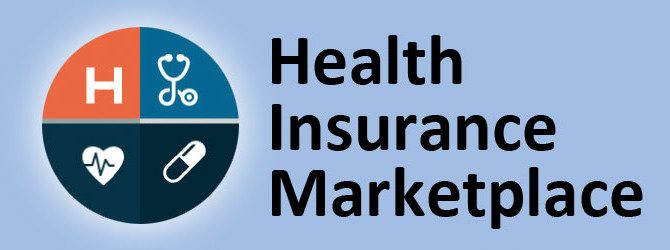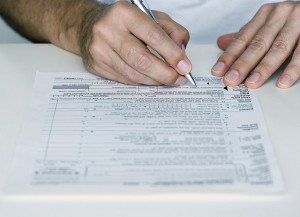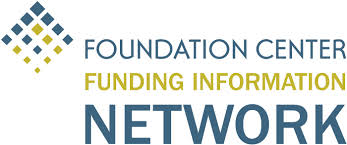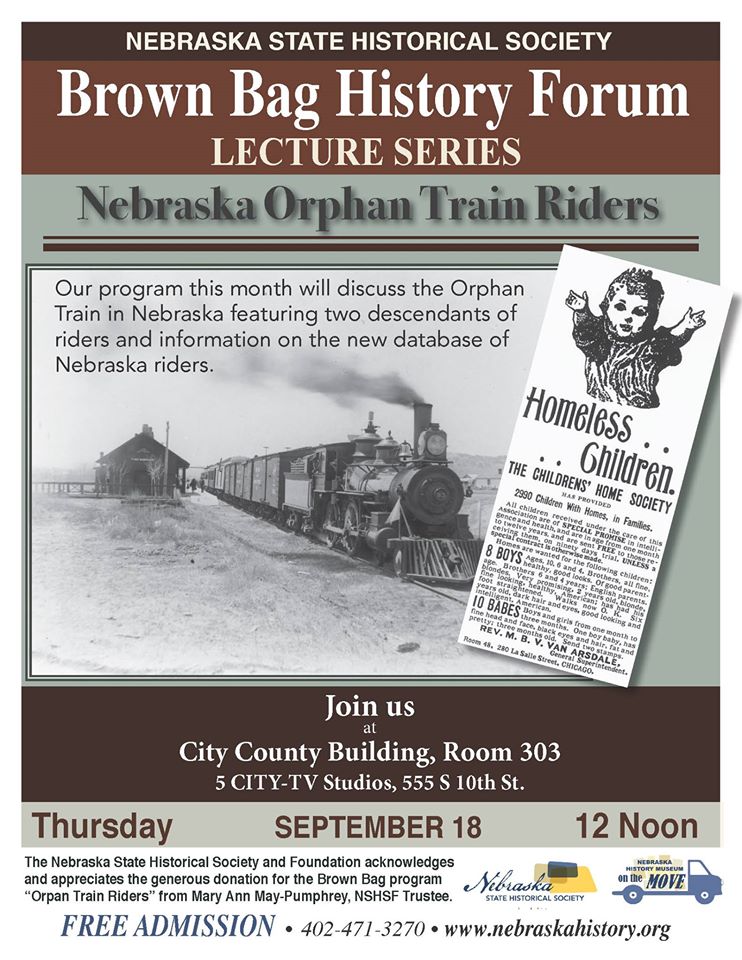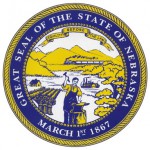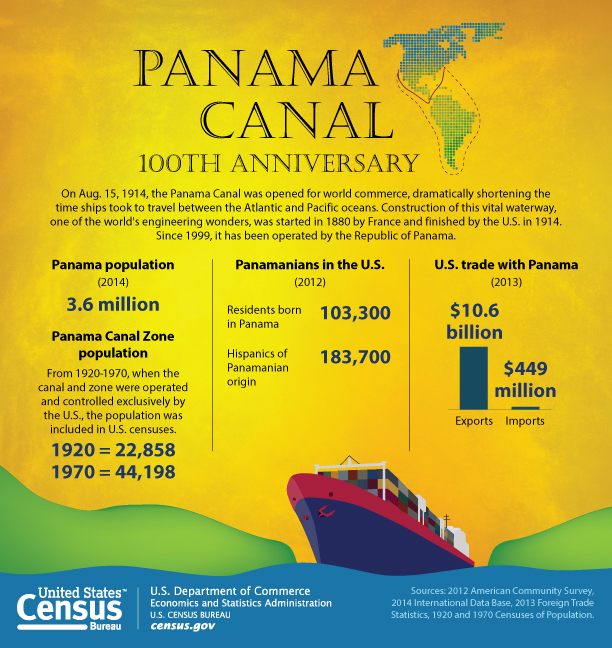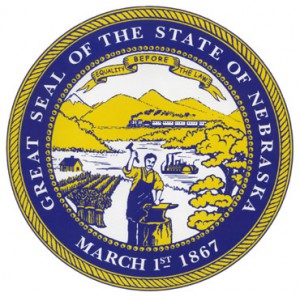Search the Blog
Categories
- Books & Reading
- Broadband Buzz
- Census
- Education & Training
- General
- Grants
- Information Resources
- Library Management
- Nebraska Center for the Book
- Nebraska Libraries on the Web
- Nebraska Memories
- Now hiring @ your library
- Preservation
- Pretty Sweet Tech
- Programming
- Public Library Boards of Trustees
- Public Relations
- Talking Book & Braille Service (TBBS)
- Technology
- Uncategorized
- What's Up Doc / Govdocs
- Youth Services
Archives
Subscribe
Category Archives: What’s Up Doc / Govdocs
Free webinar: The latest on Ebola
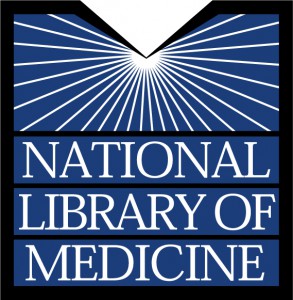 As the Ebola outbreak continues, the public must sort through all of the information being disseminated via the news media and social media. In this rapidly evolving environment, librarians are providing valuable services to their communities as they assist their users in finding credible information sources on Ebola, as well as other infectious diseases.
As the Ebola outbreak continues, the public must sort through all of the information being disseminated via the news media and social media. In this rapidly evolving environment, librarians are providing valuable services to their communities as they assist their users in finding credible information sources on Ebola, as well as other infectious diseases.
On Tuesday, December 12, 2014, library leaders from the U.S. National Library of Medicine will host the free webinar “Ebola and Other Infectious Diseases: The Latest Information from the National Library of Medicine.” As a follow-up to the webinar they presented in October, librarians from the U.S. National Library of Medicine will be discussing how to provide effective services in this environment, as well as providing an update on information sources that can be of assistance to librarians.
Speakers
- Siobhan Champ-Blackwell is a librarian with the U.S. National Library of Medicine Disaster Information Management Research Center. Champ-Blackwell selects material to be added to the NLM disaster medicine grey literature data base and is responsible for the Center’s social media efforts. Champ-Blackwell has over 10 years of experience in providing training on NLM products and resources.
- Elizabeth Norton is a librarian with the U.S. National Library of Medicine Disaster Information Management Research Center where she has been working to improve online access to disaster health information for the disaster medicine and public health workforce. Norton has presented on this topic at national and international association meetings and has provided training on disaster health information resources to first responders, educators, and librarians working with the disaster response and public health preparedness communities.
Date: December 12, 2014
Time: 2:00 PM–3:00 PM Eastern
Register for the free event
If you cannot attend this live session, a recorded archive will be available to view at your convenience. To view past webinars also done in collaboration with iPAC, please visit Lib2Gov.org.
Reprinted from District Dispatch: The Official ALA Washington Office Blog, November 21, 2014.
Immigration Information
In light of President Obama’s immigration speech last night, libraries may be receiving more questions about contacting Immigration Services.
Please take a moment to make note of, bookmark, or post these sources for information:
USCIS Nebraska Field Office: Omaha (Website)
USCIS
1717 Avenue H
Omaha, NE 68110
402-633-4000
USCIS National Customer Service Center (Website)
1 (800) 375-5283
1 (800) 767-1833 (TTY)
Only Two More Days Until Health Insurance Open Enrollment: November 15th-February 15, 2015
A one-page guide to the Health Insurance Marketplace
Here’s a quick rundown on the most important things to know about the Health Insurance Marketplace, sometimes known as the health insurance “exchange.” Follow the links for more information on each topic.
Important. 2014 Marketplace Open Enrollment ended March 31. You can still buy a Marketplace health plan only if you qualify for a special enrollment period. You can apply for Medicaid and CHIP any time. Find out if you qualify for a Special Enrollment Period or Medicaid and CHIP. Open Enrollment for 2015 coverage starts November 15, 2014.
The Health Insurance Marketplace helps uninsured people find health coverage. Fill out a Marketplace application and we’ll tell you if you qualify for:
- Private health insurance. Plans cover essential health benefits, pre-existing conditions, and preventive care. Some plans include dental coverage. In other cases, free-standing dental plans are available.
- Lower costs based on your household size and income. You can preview plans available in your area right now, with prices based on your income and household size. Most people who apply will qualify for lower costs.
- Medicaid and the Children’s Health Insurance Program (CHIP). These programs cover millions of families with limited income. If it looks like you qualify, we’ll share information with your state agency and they’ll contact you. Many but not all states are expanding Medicaid to cover more people. Find out what Medicaid expansion means for you.
Most people are eligible to use the Marketplace. Learn more about immigration status and eligibility.
Most people must have health coverage or pay a penalty. If you don’t have coverage in 2014, you’ll pay a fee of either 1% of your income, or $95 per adult ($47.50 per child), whichever is higher. You’ll pay the fee on your 2015 income taxes.
Some people qualify for an exemption from the fee, based on income or other factors.
You’re considered covered if you have Medicare, Medicaid, CHIP, any job-based plan, any plan you bought yourself, COBRA, retiree coverage, TRICARE, VA health coverage, or some other kinds of health coverage.
You can also buy a plan outside the Marketplace and still be considered covered. If you buy outside the Marketplace, you won’t be eligible for premium tax credits or lower out-of-pocket costs based on your income.
If you’re eligible for job-based insurance, you can consider switching to a Marketplace plan. But you won’t qualify for lower costs based on your income unless the job-based insurance isn’t considered affordable or doesn’t meet minimum requirements.
If you have Medicare, you’re considered covered and don’t have to make any changes. If you have Medicare, you can’t use the Marketplace to buy a supplemental plan or dental plan.
Learn how to apply through the Marketplace—online, by phone, or with a paper application..
Questions? Call 24 hours a day, 7 days a week: 1-800-318-2596 (TTY: 1-855-889-4325)
Summer 2014 State Publications List Available
For those wanting to add records to their catalogs for Nebraska state documents, the Summer 2014 list of Nebraska E-Docs is now available at http://nlc.nebraska.gov/govDocs/ShippingLists/edocsalerts.aspx.
Posted in What's Up Doc / Govdocs
Leave a comment
New Government Publications Received at the Library Commission
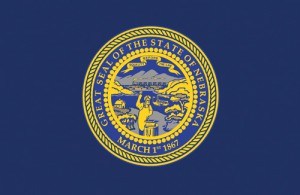 New state government publications ranging from Administrative Services to Nebraska Press, received September and October, 2014.
New state government publications ranging from Administrative Services to Nebraska Press, received September and October, 2014.
http://nlc.nebraska.gov/publications/archives/WhatsUpDoc/WUDSeptOct2014.pdf
UPDATE: IRS Tax Form Program for Libraries
On Tuesday, the Internal Revenue Service (IRS) announced that the agency will continue to deliver 1040 EZ forms to public libraries that are participating in the Tax Forms Outlet Program (TFOP). TFOP offers tax products to the American public primarily through participating libraries and post offices. The IRS will distribute new order forms to participating libraries in the next two to three weeks.
The IRS released the following statement on November 4, 2014:
Based on the concerns expressed by many of our TFOP partners, we are now adding the Form 1040 EZ, Income Tax Return for Single and Joint Filers with No Dependents, to the list of forms that can be ordered. We will send a supplemental order form to you in two to three weeks. We strongly recommend you keep your orders to a manageable level primarily due to the growing decline in demand for the form and our print budget. Taxpayers will be able to file Form 1040 EZ and report that they had health insurance coverage, claim an exemption from coverage or make a shared responsibility payment. However, those who purchased health coverage from the Health Insurance Marketplace must use the Form 1040 or 1040A.Your help communicating this to your patrons within your normal work parameters would be greatly appreciated.
We also heard and understood your concerns of our decision to limit the number of Publication 17 we plan to distribute. Because of the growing cost to produce and distribute Pub 17, we are mailing to each of our TFOP partners, including branches, one copy for use as a reference. We believe that the majority of local demand for a copy of or information from Publication 17 can be met with a visit to our website at www.irs.gov/formspubs or by ordering it through the Government Printing Office. We value and appreciate the important work you do providing IRS tax products to the public and apologize for any inconvenience this service change may cause.
Public library leaders will have the opportunity to discuss the management and effectiveness of the Tax Forms Outlet Program with leaders from the IRS during the 2015 American Library Association Midwinter Meeting session “Tell the IRS: Tax Forms in the Library.” The session takes place on Sunday, February 1, 2015.
Reprinted from District Dispatch, November 4, 2014.
“Grantseeking Basics” and “Introduction to Finding Funders” training October 28
The Love Library at the University of Nebraska – Lincoln will host a free workshop on grantseeking for nonprofit organizations on Tuesday, October 28th from 10:00am to 12:00pm in Love Library, Room 110. The sessions will be led by Kief Schladweiler, Funding Information Network Services Specialist with the Foundation Center (http://foundationcenter.org). Mr. Schladweiler will highlight the electronic and print resources available for your free use at the University of Nebraska – Lincoln’s Love Library, a Funding Information Network partner of the Foundation Center.
Grantseeking Basics
Gain an introduction to the world of foundation fundraising. Are you a representative of a nonprofit organization? New to fundraising? Do you want to learn how the funding research process works, and what tools and resources are available? Learn how to become a better grantseeker! We will cover: what you need to have in place before you seek a grant; the world of grantmakers; the grantseeking process; and available tools and resources.
Introduction to Finding Funders
This session provides an introduction to the Foundation Center’s comprehensive online database, Foundation Directory Online Professional. Learn how to create customized searches to develop targeted lists of foundations that will match your organization’s funding needs. We will spend time exploring Power Search, which allows you to search across nine Foundation Center databases – grantmakers, grants, companies, 990s, news, jobs, RFPs, nonprofit literature, and IssueLab reports.
Save a Place for Yourself
Please come if you can, and bring friends and associates.
To guarantee a seat, please contact Bob Bolin at the UNL Libraries at:
(402) 489-4926 or rbolin2@unl.edu
Kief Schladweiler has been the Foundation Center’s Funding Information Network Services Specialist since 2005. Prior to that he served as the Center’s online librarian for several years. He joined the Foundation Center in 1999 after working as a reference librarian for The New York Public Library. He received his M.A. in Library and Information Science from the University of Wisconsin-Madison.
Health Happens in Libraries…Continues
 WebJunction, in partnership with ZeroDivide and with support from the Institute of Museum and Library Services, will expand the focus of their Health Happens in Libraries program to magnify the role of public libraries as key contributors to community health. They will partner with public libraries and health information experts to develop health competency pathways that library staff can use to advance services in common community health topics. They’ll also work with 3 – 5 public libraries and their local health partners to co-create community engagement models, and share those models broadly. And finally, a range of communications resources will be developed to help library staff advocate with members of local communities about how libraries help in health and wellness, and these resources will be freely available for use by any library. You can read the full post “Connecting for Care in Your Community” about their recent and upcoming work at WebJunction.org.
WebJunction, in partnership with ZeroDivide and with support from the Institute of Museum and Library Services, will expand the focus of their Health Happens in Libraries program to magnify the role of public libraries as key contributors to community health. They will partner with public libraries and health information experts to develop health competency pathways that library staff can use to advance services in common community health topics. They’ll also work with 3 – 5 public libraries and their local health partners to co-create community engagement models, and share those models broadly. And finally, a range of communications resources will be developed to help library staff advocate with members of local communities about how libraries help in health and wellness, and these resources will be freely available for use by any library. You can read the full post “Connecting for Care in Your Community” about their recent and upcoming work at WebJunction.org.
Resource Review
- The full archive is now available for the September 2014 WebJunction webinar: Health Happens in Libraries: Looking Ahead to 2015 Open Enrollment. Presenters from the Centers for Medicare and Medicaid Services, Office of Minority Health, and Carnegie Library of Pittsburgh shared strategies and resources to connect with partners and support patrons who may have information needs regarding the health insurance marketplace, and how to understand and utilize their new coverage.
- Enroll America is hosting a free webinar series regarding Effective Strategies for the Second Open Enrollment Period, including a focus on Health Insurance Literacy in a Monday, 10/20 session at 2 PM ET. Library staff or partners interested in community outreach on health topics may benefit from the information in this series. Archived recordings of sessions will also be made available.
- October is Health Literacy Month! Great resources to help your organizations, partners, and community members understand what health literacy is, why it matters, and how to strengthen it are available from the National Network of Libraries of Medicine, Centers for Disease Control and Prevention, and MedlinePlus.
Open Enrollment for 2015 Health Insurance coverage begins November 15th
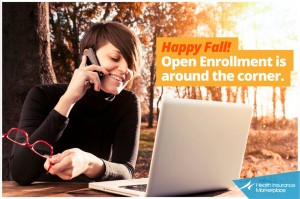 A one-page guide to the Health Insurance Marketplace
A one-page guide to the Health Insurance Marketplace
Here’s a quick rundown on the most important things to know about the Health Insurance Marketplace, sometimes known as the health insurance “exchange.” Follow the links for more information on each topic.
Important. 2014 Marketplace Open Enrollment ended March 31. You can still buy a Marketplace health plan only if you qualify for a special enrollment period. You can apply for Medicaid and CHIP any time. Find out if you qualify for a Special Enrollment Period or Medicaid and CHIP. Open Enrollment for 2015 coverage starts November 15, 2014.
The Health Insurance Marketplace helps uninsured people find health coverage. Fill out a Marketplace application and we’ll tell you if you qualify for:
- Private health insurance. Plans cover essential health benefits, pre-existing conditions, and preventive care. Some plans include dental coverage. In other cases, free-standing dental plans are available.
- Lower costs based on your household size and income. You can preview plans available in your area right now, with prices based on your income and household size. Most people who apply will qualify for lower costs.
- Medicaid and the Children’s Health Insurance Program (CHIP). These programs cover millions of families with limited income. If it looks like you qualify, we’ll share information with your state agency and they’ll contact you. Many but not all states are expanding Medicaid to cover more people. Find out what Medicaid expansion means for you.
Most people are eligible to use the Marketplace. Learn more about immigration status and eligibility.
Most people must have health coverage or pay a penalty. If you don’t have coverage in 2014, you’ll pay a fee of either 1% of your income, or $95 per adult ($47.50 per child), whichever is higher. You’ll pay the fee on your 2015 income taxes.
Some people qualify for an exemption from the fee, based on income or other factors.
You’re considered covered if you have Medicare, Medicaid, CHIP, any job-based plan, any plan you bought yourself, COBRA, retiree coverage, TRICARE, VA health coverage, or some other kinds of health coverage.
You can also buy a plan outside the Marketplace and still be considered covered. If you buy outside the Marketplace, you won’t be eligible for premium tax credits or lower out-of-pocket costs based on your income.
If you’re eligible for job-based insurance, you can consider switching to a Marketplace plan. But you won’t qualify for lower costs based on your income unless the job-based insurance isn’t considered affordable or doesn’t meet minimum requirements.
If you have Medicare, you’re considered covered and don’t have to make any changes. If you have Medicare, you can’t use the Marketplace to buy a supplemental plan or dental plan.
Learn how to apply through the Marketplace—online, by phone, or with a paper application..
Questions? Call 24 hours a day, 7 days a week: 1-800-318-2596 (TTY: 1-855-889-4325)
Spring 2014 State Publications List Available
For those wanting to add records to their catalogs for Nebraska state documents, the Spring 2014 list of Nebraska E-Docs is now available at http://nlc.nebraska.gov/govDocs/ShippingLists/edocsalerts.aspx.
Posted in What's Up Doc / Govdocs
Leave a comment
Webinar: Grant Writing for Preservation and Access Digitization Projects
A live training webinar, “Grant Writing for Preservation and Access Digitization Projects,” will be presented on September 30, 2014.
This webinar has been rescheduled. Registration is open to any new registrants. Those who have already registered do not have to re-register. Your previous registration will carry over to the new date.
Register today for “Grant Writing for Preservation and Access Digitization Projects”
- Start time: 2 p.m. Eastern Time
- Duration: 60 minutes
- Speaker: David Walls, Preservation Librarian, U.S. Government Printing Office
- Learning outcomes: The webinar will cover: preparing for your grant proposal, matching your project to the appropriate funding agency, writing an effective grant proposal while avoiding common faults, and understanding the review process.
- Expected level of knowledge for participants: No prerequisite knowledge required.
The webinar is free, however registration is required. Upon registering, a confirmation email will be sent to you. This registration confirmation email includes the instructions for joining the webinar.
Registration confirmations will be sent from sqldba @ icohere.com. To ensure delivery of registration confirmations, registrants should configure junk mail or spam filter(s) to permit messages from that email address. If you do not receive the confirmation, please notify GPO at FDLPOutreach.
GPO’s eLearning platform is now presenting webinars using WebEx. In order to attend or present at a GPO-hosted webinar, a WebEx plug-in must be installed in your internet browser(s). Download instructions.
For access to other archived Federal Depository Library Program webinars and webcasts and for a calendar of upcoming webinars and educational events, please visit the Training and Events page on FDLP.gov.
Brown Bag History Forum: Nebraska Orphan Train Riders
Webinar: How Social Media Can Help Your Business Succeed
Looking for Social Media Tips? Register for the SBA and Hootsuite Webinar
Social media is becoming an increasingly important communication channel for small businesses. However, knowing where to start is perhaps the number one obstacle holding many small business owners back. That’s why SBA has teamed up with Hootsuite for a free webinar about how social media can help your small business succeed on Tuesday, September 16 at 2:00 PM ET (1:00 PM CENTRAL).
In this 1 hour webinar, Don Baron, Director of SMB Business Development at Hootsuite will share strategies that can help you better utilize social media for your small business.
Participants will learn:
- Why social media is relevant for small businesses
- A variety of social media strategies as they relate to marketing, sales and support
- Tactics and tools that will help you execute your strategies
- Case studies of small business success on social media
Small Business Administration Opportunity for Auburn and Nemaha County in Nebraska
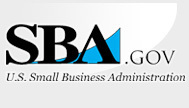 Small businesses in certain parts of southeast Nebraska seeking to buy and sell to the federal government soon will be able to take advantage of a program to successfully bid for contracts.
Small businesses in certain parts of southeast Nebraska seeking to buy and sell to the federal government soon will be able to take advantage of a program to successfully bid for contracts.
Thanks to a redesignation Oct. 1, Auburn and Nemaha County will be qualified as a Historically Underutilized Business Zones (HUBZone). This program helps small businesses in urban and rural communities gain preferential access to federal procurement opportunities. SBA’s HUBZone program is in line with the efforts of both the Administration and Congress to promote economic development and employment growth in distressed areas by providing access to more federal contracting opportunities.
The program’s benefits for HUBZone-certified companies include competitive bidding for contracts, a 10 percent price evaluation preference in full and open contract competitions, as well as subcontracting opportunities. Moreover, the federal government has a goal of awarding three percent of all dollars for federal prime contracts to HUBZone-certified small business concerns.
The SBA regulates and implements the HUBZone program by determining which businesses are eligible to receive HUBZone contracts, maintains a listing of qualified HUBZone small businesses that federal agencies can use to locate vendors, adjudicates protests of eligibility to receive HUBZone contracts and reports to the Congress on the program’s impact on employment and investment in HUBZone areas.
Auburn and Nemaha County were redesignated based on the high rate of unemployment in that area.
For guidance in southeast Nebraska on bidding for federal contracts, please contact Julie Ann Wilhelm at the Auburn Procurement Technical Assistance Center at 402-414-5077 or jwilhelm@unomaha.edu.
Updates to HUBZones are public and anyone can subscribe to them. Consider subscribing to HUBZone News.
As always, small businesses and economic resource providers can contact the SBA helpdesk at hubzone@sba.gov with your questions. You may also call in to the office hours. Details are on our website at www.sba.gov/hubzone.
Webinar: Understanding Social Security and MySSA
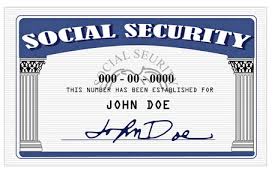 The American Library Association (ALA) is encouraging librarians to know how to use My Social Security (MySSA), the online Social Security resource.
The American Library Association (ALA) is encouraging librarians to know how to use My Social Security (MySSA), the online Social Security resource.
A webinar, presented by leaders and members of the development team of MySSA, will provide listeners with an overview of MySSA. In addition to receiving benefits information in print, the Social Security Administration is encouraging librarians and patrons to create an online MySSA account to view and track benefits.
Listeners will learn about viewing earnings records and receiving instant estimates of their future Social Security benefits. Those already receiving benefits can check benefit and payment information and manage their benefits.
Speakers include:
- Maria Artista-Cuchna, Acting Associate Commissioner, External Affairs
- Kia Anderson, Supervisory Social Insurance Specialist
- Arnoldo Moore, Social Insurance Specialist
- Alfredo Padilia Jr., Social Insurance Specialist
- Diandra Taylor, Management Analyst
Registration is full for the live webinar on Wednesday, September 17, 2014.
However, to be notified when the recorded session is available, please go to Lib2Gov Webinar: MySSA.
.
FREE WEBINAR: Federal Legislative History 101
 A live training webinar, “Federal Legislative History 101,” will be offered on Tuesday, October 7, 2014.
A live training webinar, “Federal Legislative History 101,” will be offered on Tuesday, October 7, 2014.
Register today for “Federal Legislative History 101”
- Start time: 2:00 p.m. Eastern Time/ 1:00 Central
- Duration: 60 minutes
- Speaker: Rick McKinney is Assistant Law Librarian / Legislative Librarian at the Federal Reserve Board Law Library in Washington, D.C., where he has served for the past 30 years. He is the founder and principal editor of LLSDC’s Legislative Source Book on the Internet and has authored numerous articles and presentations in the field of Federal statutory, legislative, and regulatory research.
- Learning outcomes: The webinar will discuss the ways in which Federal statutes are published and cited, what Federal legislative histories are and how they are used, the normal steps in compiling and researching Federal legislative histories, and the various resources available for Federal legislative history research – both free and commercial.
- Expected level of knowledge for participants: No prerequisite knowledge required
The webinar is free, but registration is required. Upon registering, a confirmation email, which includes instructions for joining the webinar, will be sent to you.
Registration confirmations will be sent from sqldba @ icohere.com. To ensure delivery of registration confirmations, registrants should configure junk mail or spam filter(s) to permit messages from that email address. If you do not receive the confirmation, please notify GPO at FDLPOutreach.
GPO’s eLearning platform is now presenting webinars using WebEx. In order to attend or present at a GPO-hosted webinar, a WebEx plug-in must be installed in your internet browser(s). Download instructions.
For access to other archived Federal Depository Library Program webinars and webcasts and for a calendar of upcoming webinars and educational events, please visit the Training and Events page on FDLP.gov.
New Government Publications Received at the Library Commission
This day in history…
Today marks the 100th anniversary of the opening of the Panama Canal. Below is a poster sent out by the U.S. Census Bureau to commemorate this remarkable feat of engineering.
Doc Spot: New Website “Executive Orders and Other Presidential Documents: Sources and Explanations”
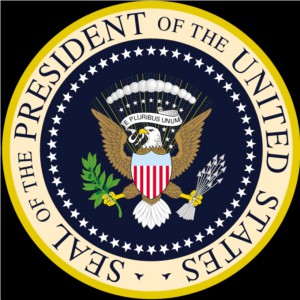 The Legislative Research Special Interest Section of the Law Librarians Society of Washington, D.C., Inc. (LLSDC) is pleased to announce the availability of a new website entitled “Executive Orders and Other Presidential Documents: Sources and Explanations.” The site attempts to briefly lay out and link to all major sources for these materials which includes Presidential directives, proclamations, signing statements, executive orders, memoranda, and other documents. In addition the site links to many sources, such as CRS reports, that explain these documents.
The Legislative Research Special Interest Section of the Law Librarians Society of Washington, D.C., Inc. (LLSDC) is pleased to announce the availability of a new website entitled “Executive Orders and Other Presidential Documents: Sources and Explanations.” The site attempts to briefly lay out and link to all major sources for these materials which includes Presidential directives, proclamations, signing statements, executive orders, memoranda, and other documents. In addition the site links to many sources, such as CRS reports, that explain these documents.
While the sections listed on the new website are available online, the Nebraska Library Commission does also have three of the titles in print format: The Code of Federal Regulations – Title 3 – Presidential Documents ; the Federal Register ; and Public Papers of the President. These titles, and thousands of other state and federal publications, are available either in print or online through the Nebraska Publications Clearinghouse. Feel free to browse the catalogs, or give us a call and we’ll be happy to help you find what you’re looking for.

